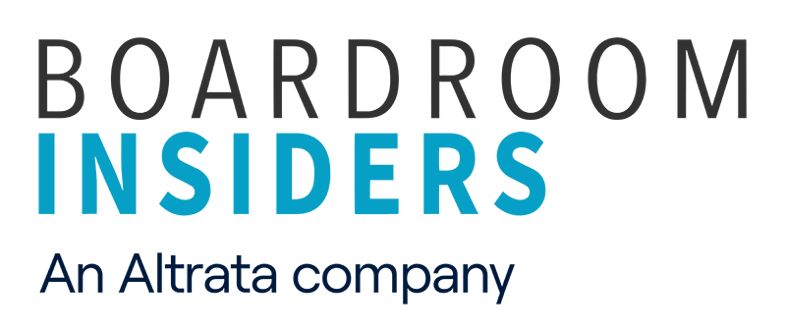
We live in a data-driven world, increasingly enabled by technologies that allow us to measure nearly everything. This is a joy for those who like to live by the numbers, but a burden for marketers who are expected to answer to management’s requests for metrics and ROI reports on every activity.
There is no question that measurement is important and that proving success--or failure--of an activity has become just as important as the end goal of the activity. But as Albert Einstein famously stated, “Not everything that can be counted counts, and not everything that counts can be counted.”
A concerning trend is emerging however, that of eliminating any activity that cannot be measured in hard numbers--or measured easily. Because of the pressure to measure, companies are defaulting to activities that are easily measurable at the expense of other intangibles that are not. As John Hayes, chief marketing officer at American Express said, “We tend to overvalue the things we can measure and undervalue the things we cannot.” Relationships and trust for example, are impossible to quantify, yet time and time again they lead to landmark deals and significant revenue. The problem is, that stuff never makes it into your CRM.
Case in point: CXO engagement. Sales leaders who make key account marketing and CXO engagement a part of their strategy say it helps their companies close bigger deals faster. But when you question them about how they measure CXO engagement, you typically don’t get an answer. One customer recently told us, “I can’t prove CXO enagagement works. But I know it is a critical piece of the overall puzzle.”
We know of at least one company that figured out how to measure these activities, and the results spoke for themselves. For more than five years Sprint ran a program called “Customer Discovery,” the objective of which was to grow share of wallet in its key accounts. The program involved a twelve-week intensive discovery process by which account managers dove deep into a customer’s industry, company strategy and CXO initiatives. The end game was to come up with customer-specific business cases and get a meeting with the customer CIO to present the concepts. Sprint tracked revenue lift on the accounts that were put through the Customer Discovery program compared to other accounts that did not receive this intensive treatment. The results, according Greg Litrell, with whom we spoke back in 2012 were as follows:
- Customer Discovery accounts showed an 18% lift in wireless revenue and 35% lift in wireline revenue.
- 100% of the time they gained an audience with customer CXOs, even if the initial engagement started lower.
- Customers perceived Sprint as a strategic, thought leader and true business partner.
Under the current mindset, where proving ROI on every activity is a must, this case is a success story because Sprint was able to separate, track and measure revenue lift for the accounts within the program--something that many companies are unable to figure out. According to Littrell, figuring out the measurement piece was critical--had they not been able to prove ROI on the program, the program likely would have been cut early on.
Of course, revamping your measurement strategy can take a while. So in the meantime, here are four reasons why building relationships with CXOs is invaluable, even if you can’t necessarily track it on a report.
1. Covert Referrals
We often speak with customers who want to know the exact ROI from engaging C-level executives in a business conversation. The reality is that there is no way to capture and measure human interaction. Let’s say you meet with a CXO who decides not to immediately purchase your product or service. The ROI of that conversation is $0--or is it? We can only track whether or not the deal was won at the time, but what we can’t track is any conversations that CXO has with colleagues, peers, and other businesses that might send more business your way. Even passing conversations can result in another interested party seeking out more information about your company.
2. Overt Referrals
One of the greatest opportunities that come from CXO engagements is an introduction to another individual or company that could benefit from your product or service. Sometimes this comes in the form of a casual recommendation, while other times it results in a direct introduction to another party. It is possible that a meeting with a CXO that does not result in a sale can actually be your most valuable business meeting of the year.
3. Uncovering New Opportunities That You Did Not Know About
Remember the old saying, “You don’t know what you don’t know.” Often, during a conversation with a CXO, you will find out about business opportunities that you did not even know existed. The information gleaned from this conversation can be invaluable in terms of putting you on to a new, previously unknown, opportunity, yet this typically does not get tracked in any CRM.
4. Ongoing Relationships
If you strike the right chord with a CXO, you can spark a symbiotic relationship that will last for the entirety of your career, even if it does not win you an immediate deal. At the end of the day, CXOs are just people with wants, needs, struggles and desires of their own who are looking to connect and build relationships with other smart people. Every meeting is an opportunity to build a relationship with no expiration date. There is absolutely no way to capture the value of these relationships in any CRM because they are intangible, and often, invaluable, not just from a personal perspective but from a business perspective.
Human relationships can be the most difficult--and the most valuable--elements of the sales process, yet they typically get no credit because they can’t be measured. Companies that focus on quantifiable activities alone--while devaluing intangibles like relationship building--do so at their own peril and will likely never know what they are missing.







Share Your Thoughts